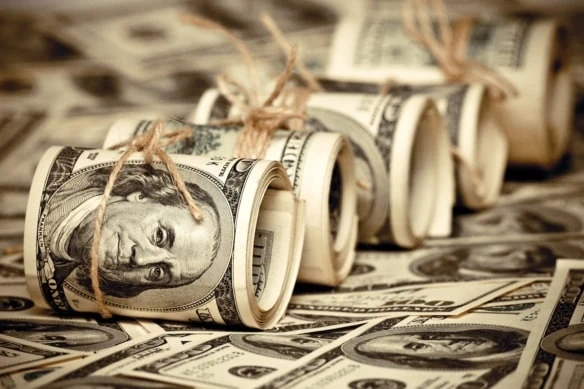2023 could go down in history as the year when money market funds regained popularity. For years, the Federal Reserve’s lenient monetary policy, which maintained interest rates at zero, rendered money market funds unattractive to many investors, often labeling them as idle investments.
However, the scenario has shifted. With the current interest rates (even after a recent half percentage point cut by the Federal Reserve), top money market mutual funds are now providing competitive yields. Crucially, they also serve as a haven amidst an unpredictable stock market. These advantages are likely to prove valuable to investors, especially in what is anticipated to be a volatile 2024.
March 2023 saw the second- and third-largest bank failures in U.S. history, raising some uncomfortable questions about the safety of our savings. And this is where money market funds really shine. Checking and savings accounts are only insured up to $250,000 by the Federal Deposit Insurance Corporation (FDIC). If your bank fails and you have deposits higher than that amount, your savings are not guaranteed. You become a general creditor along with everyone else.
But in the case of money market funds, you don’t hold cash. You hold a diversified basket of high-quality “cash equivalents” like short-term U.S. government Treasury bills or corporate commercial paper. And those assets belong to the money market mutual fund and its investors, not the manager, so if the manager of the fund gets into financial trouble, you don’t have to fight for your assets in bankruptcy court.
Today, we’re going to take a look at some of the best money market funds to earn a solid return while also steering clear of both stock market volatility and the risks of bank failure.
Disclaimer: This article does not constitute individualized investment advice. These funds appear for your consideration and not as investment recommendations. Act at your own discretion.
Editor’s Note: Tabular data presented in this article are up-to-date as of Dec. 9, 2024.
Featured Financial Products
Table of Contents
What Is a Money Market Fund?

A money market fund, or a money market mutual fund, is an open-ended mutual fund that invests in extremely short-term debt investments such as U.S. government T-bills, commercial paper (short-term debt issued by companies), repurchase agreements, or other high-quality, low-risk debt investments with a very short maturity. (Maturity is how long it takes before the principal on the debt must be repaid.)
Under current rules, any assets the money market fund holds should have a maturity of under 13 months, and the portfolio’s weighted average maturity should be 60 days or less. This keeps the funds liquid (easily converted into cash) and eliminates interest-rate risk—in other words, the risk that a spike in market interest rates will cause the value of the portfolio to fall.
Just be aware that in a few extreme cases, selling your shares might be costly or impossible. Most fund providers have boilerplate warnings explaining that they might charge you a fee, or suspend your ability to sell shares, if the fund’s liquidity falls below certain minimums on account of market conditions or other factors.
Money market funds are somewhat unique among mutual funds in that they specifically target a net asset value of $1 per share. Any earnings that cause the net asset value to go higher than $1 get distributed as dividends. This means that, unless you reinvest your dividends, the value of your money market mutual fund will not grow over time.
There are different types of money market funds. Thus, the best money market funds for one investor might be different from the best choice for another.
Types of Money Market Funds

Let’s walk through some of those differences with these types of money market funds:
1. Treasury Money Market Fund
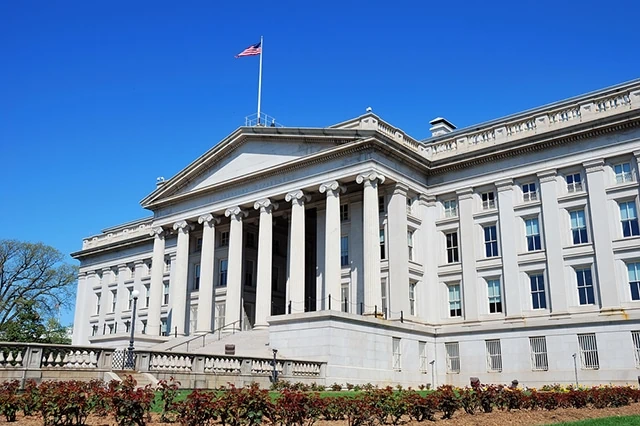
A Treasury money market fund invests purely in U.S. Treasury securities or in repo agreements collateralized by treasury securities. There are no bank or corporate securities. If absolute safety is your primary consideration, this is going to be your best option.
2. Government Money Market Fund

A government money market fund is slightly different. While it will generally hold government securities like a Treasury money market fund, a government money market fund can also hold government agency debt such as Fannie Mae or Freddie Mac securities. This inclusion of both government and agency securities makes government money market funds, in theory, slightly less secure than a pure Treasury money market fund. That’s because agency bonds are not explicitly guaranteed by the U.S. Treasury.
3. Prime Money Market Funds

Prime money market funds have a little more flexibility. In addition to government and agency securities, they can also hold corporate commercial paper, certificates of deposit (CDs), and other private short-term securities. Of course, this added flexibility and generally slightly higher yield comes at the expense of slightly higher credit risk.
Related: 11 Best CD Alternatives to Capture Interest With Low Risk
4. Municipal Money Market Funds

Most money market funds are fully taxable, but municipal money market funds are generally exempt from federal income tax. “Muni” money market funds invest in short-term securities issued by state or local governments. These can be further divided into national and even single-state municipal money market funds.
Finally, note that money market funds are different from money market accounts. A money market fund is a mutual fund, whereas a money market account (MMA) is a form of bank account.
Why Invest in Money Market Mutual Funds?
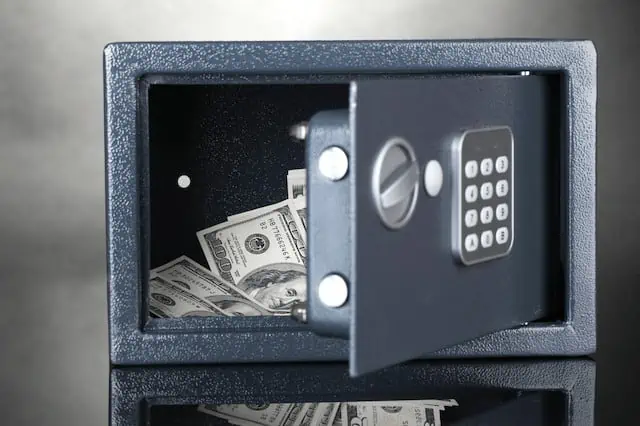
You have a lot of options for your cash these days, and money market funds can play an important role. So let’s cover when a money market mutual fund might make sense.
To start, remember that money market funds are liquid, generally giving you access to your funds within 24 hours. But they’re still savings vehicles, and they’re really not designed to be used for day-to-day expenses like checking accounts. So, think of a money market fund as a nice place to park cash that you might need sometime in the near future.
The most direct competition for money market funds would be savings accounts or money market accounts offered by a bank or credit union. In each of these cases, your funds earn interest while remaining liquid and generally free of interest-rate risk. As a general rule, money market funds will offer slightly higher interest rates than bank products, though that can change based on market conditions.
Related: 7 Best Schwab ETFs to Buy [Build Your Core for Cheap]
There are differences, however, that go beyond raw interest rates.
Savings accounts and money market accounts offered by a bank or credited union will generally be protected by the Federal Deposit Insurance Corporation (FDIC) up to $250,000. So long as your account remains below that threshold, you can’t lose money.
Related: 7 Best Fidelity ETFs for 2025 [Invest Tactically]
Money market mutual funds are not protected by the Federal Deposit Insurance Corporation. Though you generally have minimal credit risk, it is possible to lose money in a money market mutual fund, particularly if it holds corporate commercial paper or other non-government securities.
But here’s where it gets interesting.
2023 made it clear how fragile our banking system can be. In cases where you have more than $250,000 to park, a money market fund—and in particular, one that invests in government and agency securities—will be safer than a bank savings product (where you’re limited to $250,000 in protection) because the money market fund’s assets are held separate from those of the manager or sponsor. Effectively, even if the fund’s management company goes bankrupt, it doesn’t mean the fund does.
If your bank fails like Silicon Valley Bank and your account balance is over $250,000, you have to hope and pray the government decides to bend the rules and come to your rescue. Because otherwise, you’re in line with everyone else fighting for the scraps in bankruptcy court.
Our Favorite Money Market Funds
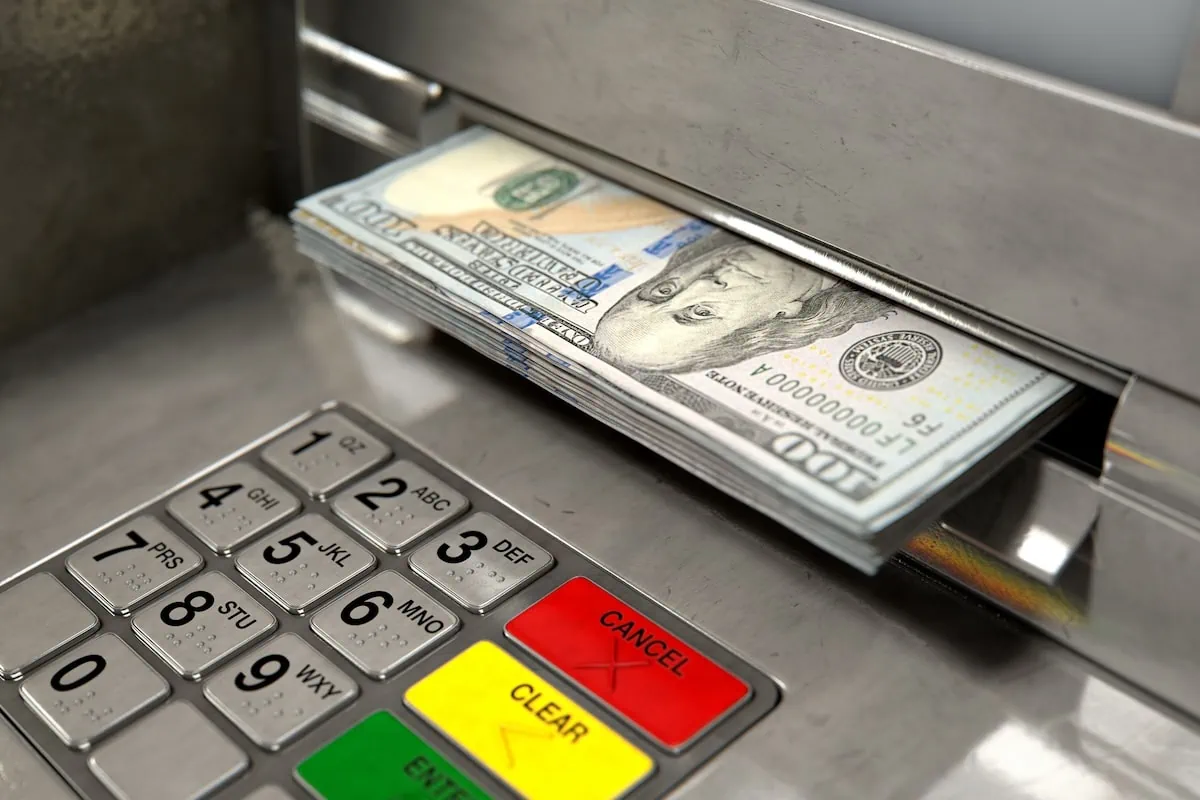
Today, we’re going to cover some of the best money market funds for 2025. But first, an important note: Availability will vary by broker. It’s common for a major brokerage house like Fidelity or Charles Schwab to limit availability mostly to their own in-house money market funds.
That’s perfectly fine. So long as you understand the basics and know what to look for, you can generally find a comparable fund at your respective broker.
1. Schwab U.S. Treasury Money Fund (SNSXX)
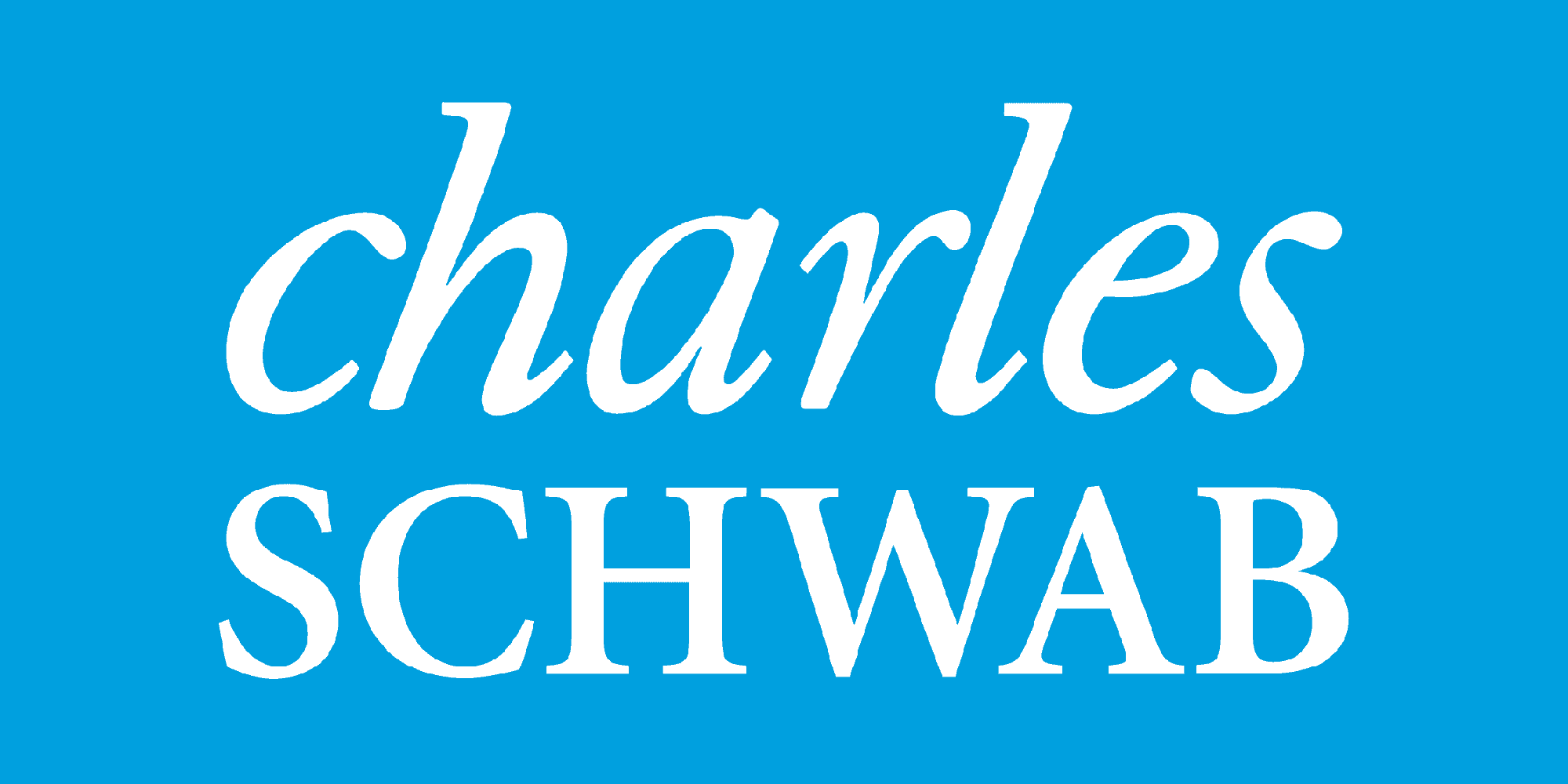
— Assets under management: $34.2 billion
— Minimum initial investment: $0
— 7-day SEC yield: 4.3%*
— Expense ratio: 0.34%, or $34 per year for every $10,000 invested
Let’s start with safety. If you are concerned about potential bank failures or troubles in the financial sector, it makes sense to stick to only the safest money market funds. And few are going to be safer than the Schwab U.S. Treasury Money Fund (SNSXX).
Related: Best Schwab Retirement Funds for an IRA
SNSXX owns a portfolio of Treasury securities backed by the full faith and credit of the U.S. government. That’s it. It owns no corporate or agency securities, and it doesn’t trade in repo agreements or derivatives.
This is literally as safe as money market funds get.
The weighted average maturity of its holdings is just 49.4 days, meaning you have virtually no interest-rate risk. The fund has no minimum investment. And perhaps most importantly, its yield is a competitive 4.3% as I write this.
If your IRA or 401(k) is held at Charles Schwab, the Schwab U.S. Treasury Money Fund could be an excellent option to park the cash you want to keep safe.
* 7-day SEC yield reflects the annualized daily income distributions made over the previous seven days. This is a standard measure for money market funds.
Related: Best Schwab Retirement Funds for a 401(k) Plan
Featured Financial Products
2. Schwab Municipal Money Fund – Investor Shares (SWTXX)

— Assets under management: $4.2 billion
— Minimum initial investment: $0
— 7-day SEC yield: 2.1%
— Expense ratio: 0.34%, or $34 per year for every $10,000 invested
If you find yourself in a high tax bracket, the Schwab Municipal Money Fund – Investor Shares (SWTXX) is a potentially good option. Its current tax-free yield is 2.1%, but this is equivalent to a 3.55% yield if you’re in the 37% tax bracket and pay the 3.8% Medicare surcharge.
SWTXX holds a diverse basket of municipal securities spanning the 50 states and Washington, D.C., and the weighted average maturity of its holdings is just 29.2 days, reducing interest-rate risk to effectively zero. This fund also has no minimum investment.
Related: Best Schwab Funds to Hold in an HSA
As a general rule, a municipal money market fund will only make sense if you are in a high tax bracket and tax minimization is a priority. Most investors will enjoy a higher return, even after taxes, in good, old-fashioned taxable money market funds.
Like Young and the Invested’s content? Be sure to follow us.
3. Fidelity Government Money Market Fund (SPAXX)

— Assets under management: $340.3 billion
— Minimum initial investment: $0
— 7-day SEC yield: 4.3%
— Expense ratio: 0.42%, or $42 per year for every $10,000 invested
For an example of a more expansive government money market fund, consider the Fidelity Government Money Market Fund (SPAXX). Unlike the Schwab U.S. Treasury Money Fund, this Fidelity money market fund can buy more than just U.S. Treasury securities. About 40% of its portfolio is invested in repo agreements backed by Treasury securities, with most of the rest in fixed-rate and floating-rate agency securities (e.g., Fannie Mae and Freddie Mac securities).
Related: 5 Best Fidelity Retirement Funds [Low-Cost + Long-Term]
There is ever so slightly more credit risk in a “government” money market fund as opposed to a “treasury” money market fund, so keep that in mind. But your risk of loss in a government fund is still exceedingly small.
This Fidelity fund has a weighted average maturity of just 34.0 days and sports a current yield of roughly 4.3%. If you hold your brokerage accounts at Fidelity, this is a worthy option for your idle cash.
Many brokerage accounts will actually sweep idle cash into their money market funds so you’re still earning interest even if you don’t have all of your funds invested.
Related: Best Fidelity Retirement Funds for a 401(k) Plan
4. Vanguard Treasury Money Market Fund (VUSXX)

— Assets under management: $84.1 billion
— Minimum initial investment: $3,000
— 7-day SEC yield: 4.5%
— Expense ratio: 0.09%, or $9 per year for every $10,000 invested
Vanguard has a well-deserved reputation for offering some of the lowest fees in the industry. And remember, a dollar saved in fees is a dollar that goes straight to your returns. You might not notice as much in an equity mutual fund, where the differences in fees can get lost in the noise of market volatility. But in a money market fund, where the differences with the competition are measured in basis points (a basis point is one one-hundredth of a percentage point), every little bit counts.
Related: 5 Best Vanguard Dividend Funds [Low-Cost Income]
Consider the Vanguard Treasury Money Market Fund (VUSXX). The Vanguard fund has an expense ratio of just 0.09%, the lowest of the money market funds covered here. And those lower fees contribute to its exceptionally high yield of 4.5%.
VUSXX is a Treasury money market fund, invested nearly 99% in Treasury securities with the rest split between other U.S. government obligations and repurchase agreements backed by Treasury securities. Its weighted average maturity is just 35.0 days. The minimum investment, at $3,000, is a little higher than that of the other funds reviewed in this article, but it’s far from onerous.
If your broker gives you access to Vanguard funds, you’ll be hard pressed to do better than this one.
Like Young and the Invested’s content? Be sure to follow us.
5. Vanguard Municipal Money Market Fund (VMSXX)
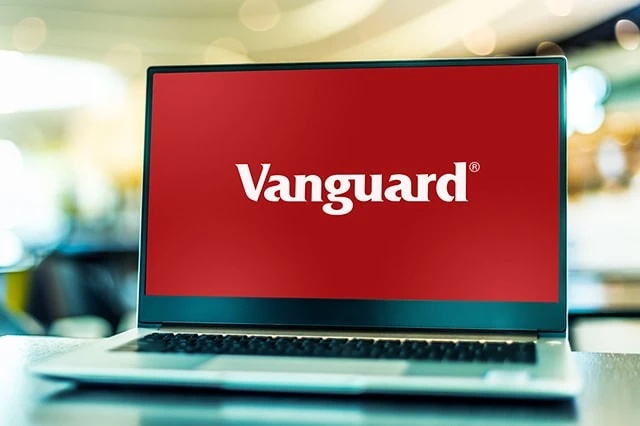
— Assets under management: $18.1 billion
— Minimum initial investment: $3,000
— 7-day SEC yield: 2.2%
— Expense ratio: 0.15%, or $15 per year for every $10,000 invested
As another tax-free option for investors in high brackets, consider the Vanguard Municipal Money Market Fund (VMSXX). This fund sports a portfolio of state and local government securities. Its weighted average maturity is an exceptionally low 16 days. And like most Vanguard funds, its minimum investment is just $3,000.
Related: 5 Best Vanguard Retirement Funds [Start Saving More, for Less]
VMSXX sports a current yield of 2.2%, which is 100% free of federal income tax. This is equivalent to a 3.72% taxable yield if you are in the highest federal tax bracket and pay the 3.8% Medicare surcharge.
Given that VUSXX’s current 4.5% yield is slightly lower than VMSXX’s tax-equivalent yield of 3.72%, right now, it will make sense for most investors to buy VMSXX option—if they’re using a taxable brokerage account, that is. If you’re using an IRA or other tax-advantaged account, however, you’re better off with VUSXX.
Related: Best Vanguard Retirement Funds for an IRA
Featured Financial Products
Related: 15 Best Investing Research & Stock Analysis Websites

Being a discerning investor is, for better or worse, all about the homework. If you’re “doing it right,” you’re culling through useful information regularly on stock analysis websites, stock news apps, research reports and other valuable information.
Being a data-driven investor myself, I love these kinds of tools. So let me share with you my favorite investment research software, stock research websites and informational apps.
Related: 12 Best Long-Term Stocks to Buy and Hold Forever

As even novice investors probably know, funds—whether they’re mutual funds or exchange-traded funds (ETFs)—are the simplest and easiest ways to invest in the stock market. But the best long-term stocks also offer many investors a way to stay “invested” intellectually—by following companies they believe in. They also provide investors with the potential for outperformance.
So if you’re looking for a starting point for your own portfolio, look no further. Check out our list of the best long-term stocks for buy-and-hold investors.
Related: The Best Fidelity ETFs for 2025 [Invest Tactically]
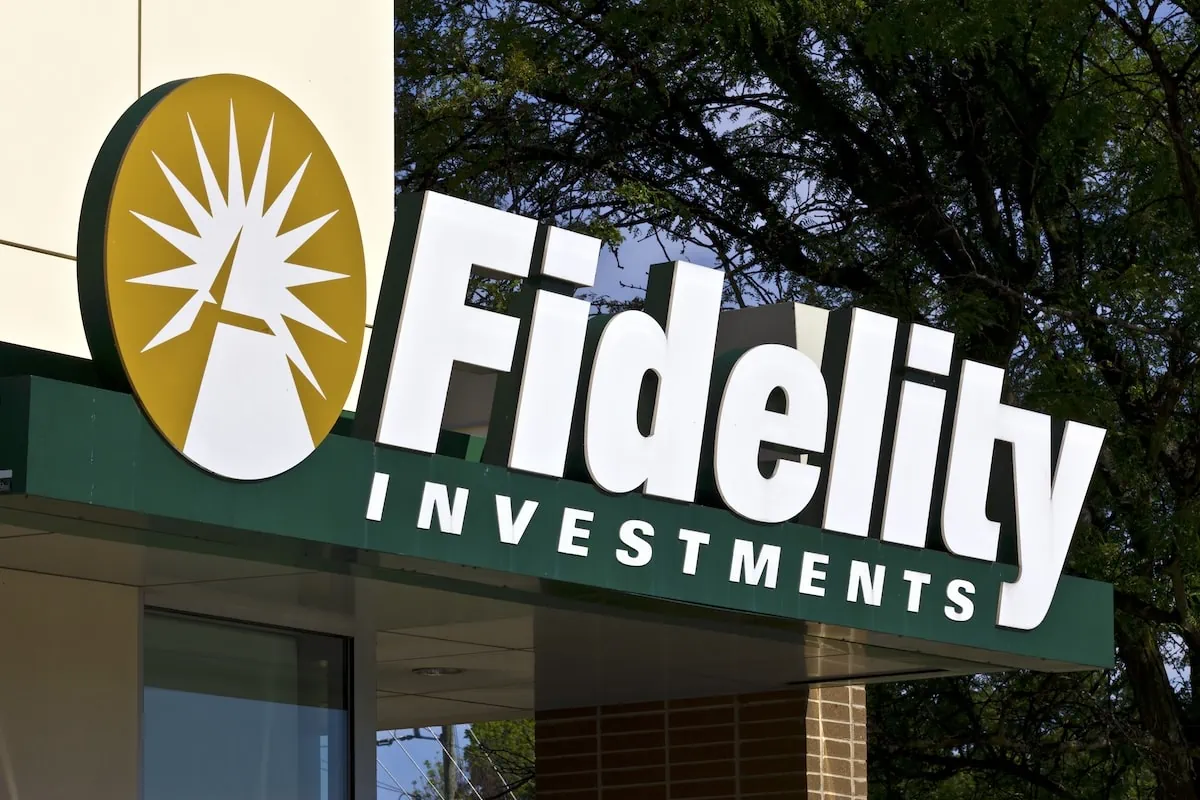
If you’re looking to build a diversified, low-cost portfolio of funds, Fidelity’s got a great lineup of ETFs that you need to see.
In addition to the greatest hits offered by most fund providers (e.g., S&P 500 index fund, total market index funds, and the like), they also offer specific funds that cover very niche investment ideas you might want to explore.
Related: 9 Best Monthly Dividend Stocks for Frequent, Regular Income
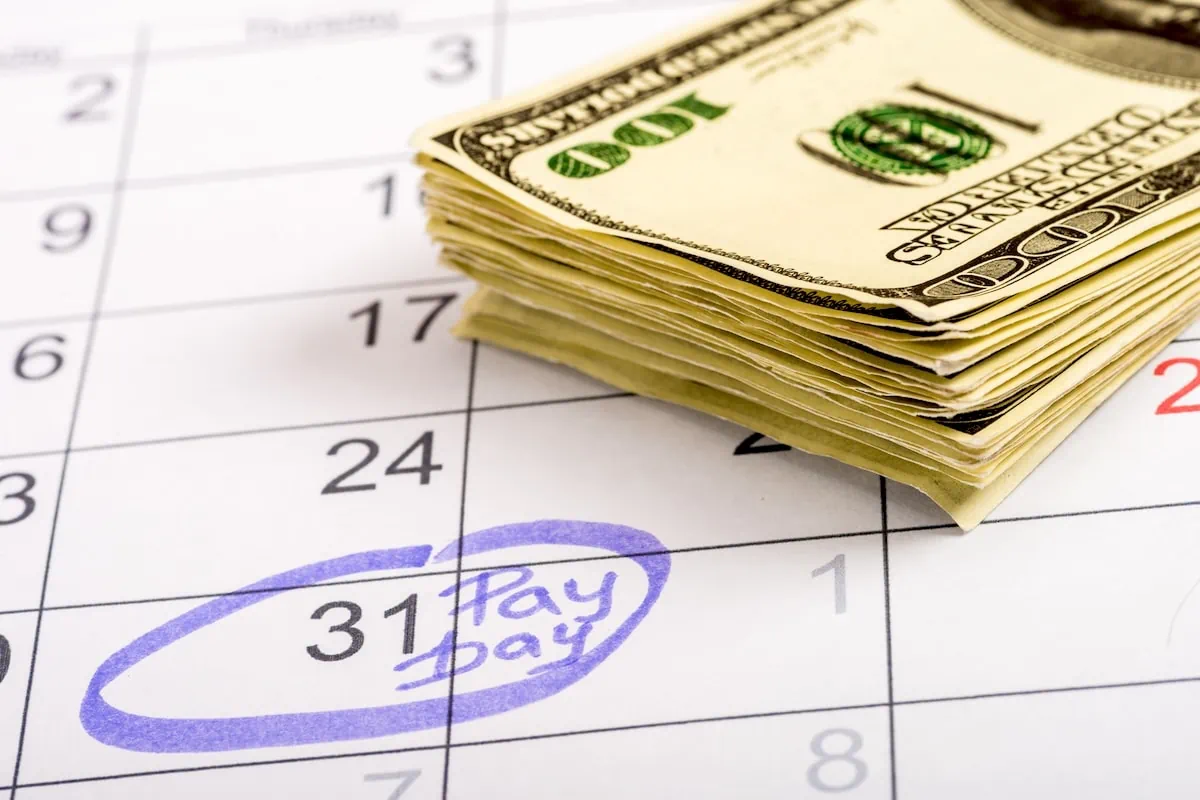
The vast majority of American dividend stocks pay regular, reliable payouts—and they do so at a more frequent clip (quarterly) than dividend stocks in most other countries (typically every six months or year).
Still, if you’ve ever thought to yourself, “it’d sure be nice to collect these dividends more often,” you don’t have to look far. While they’re not terribly common, American exchanges boast dozens of monthly dividend stocks.
Please Don’t Forget to Like, Follow and Comment
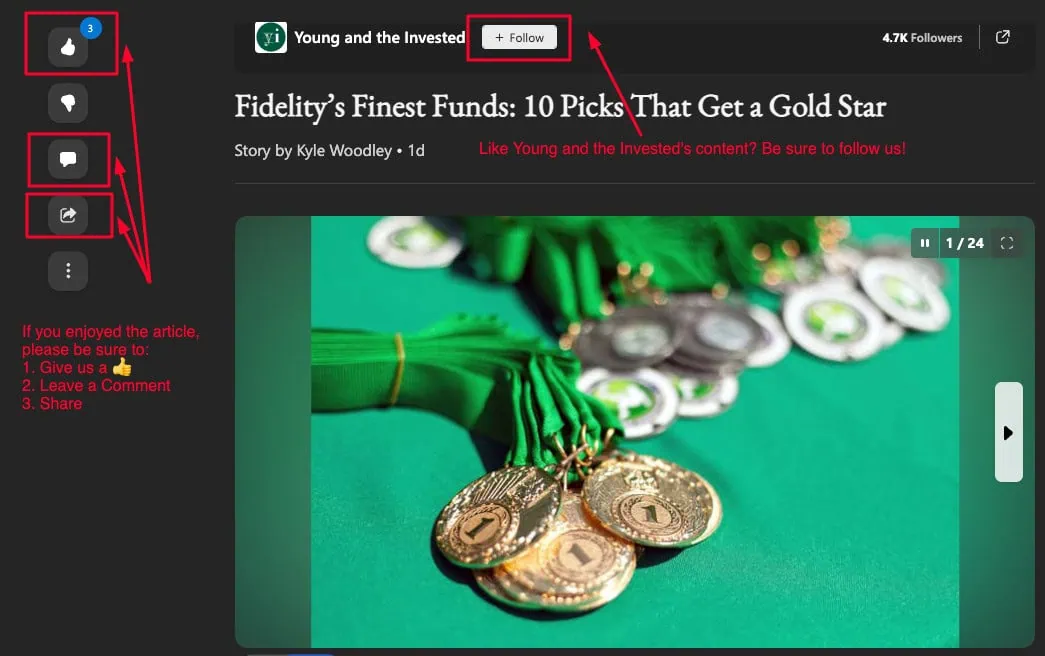
Did you find this article helpful? We’d love to hear your thoughts! Leave a comment with the box on the left-hand side of the screen and share your thoughts.
Also, do you want to stay up-to-date on our latest content?
1. Follow us by clicking the [+ Follow] button above,
2. Subscribe to The Weekend Tea, our weekly newsletter to read more about investing, spending, taxes, and more, and
3. Give the article a Thumbs Up on the top-left side of the screen.
4. And lastly, if you think this information would benefit your friends and family, don’t hesitate to share it with them!




